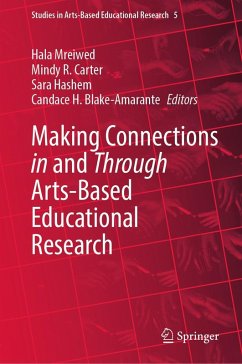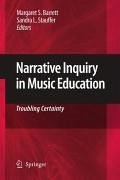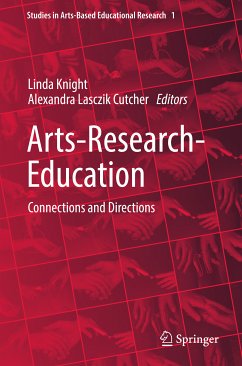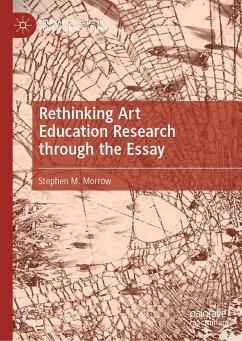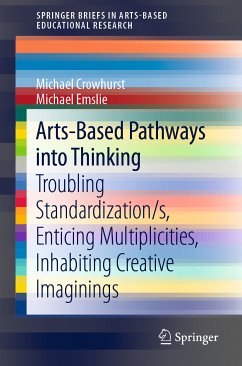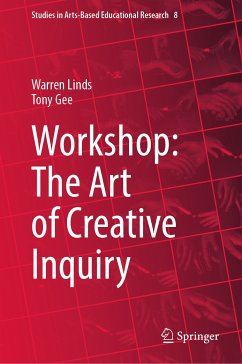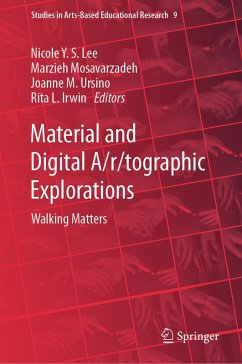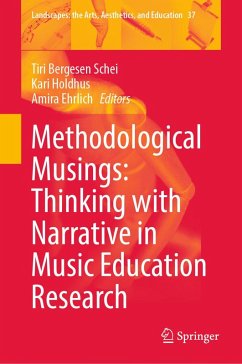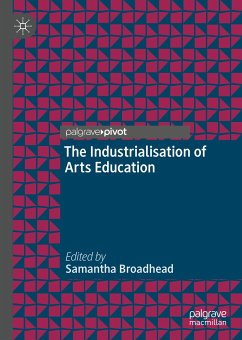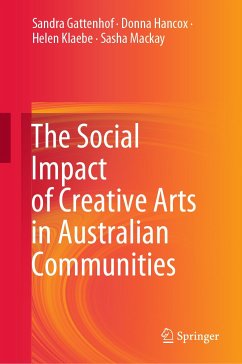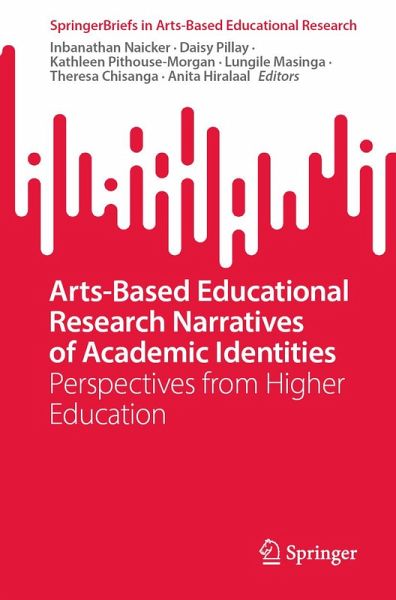
Arts-Based Educational Research Narratives of Academic Identities (eBook, PDF)
Perspectives from Higher Education
Redaktion: Naicker, Inbanathan; Hiralaal, Anita; Chisanga, Theresa; Masinga, Lungile; Pithouse-Morgan, Kathleen; Pillay, Daisy
Versandkostenfrei!
Sofort per Download lieferbar
40,95 €
inkl. MwSt.
Weitere Ausgaben:

PAYBACK Punkte
20 °P sammeln!
This book delves into the complexities of being and becoming an academic in higher education. Inspired by the arts, the book introduces new voices and insights to scholarly discussions about what constitutes data and analysis in higher education research. It demonstrates ABER's ability to shape and critique academic identity narratives in response to pressing problems and dilemmas in higher education.The book includes exemplars from studies conducted primarily in South African contexts and led by South African researchers. It explores diverse modes, including collage, digital artwork, letter w...
This book delves into the complexities of being and becoming an academic in higher education. Inspired by the arts, the book introduces new voices and insights to scholarly discussions about what constitutes data and analysis in higher education research. It demonstrates ABER's ability to shape and critique academic identity narratives in response to pressing problems and dilemmas in higher education.
The book includes exemplars from studies conducted primarily in South African contexts and led by South African researchers. It explores diverse modes, including collage, digital artwork, letter writing, metaphor, creative nonfiction, and theatre-making. Contributions from expert scholars in Canada and the USA supplement this research and show how it has been enriched by critical transcontinental conversations. The authors offer new perspectives on the entwined and complex relationship between the ABER, narratives, and identities.
The book includes exemplars from studies conducted primarily in South African contexts and led by South African researchers. It explores diverse modes, including collage, digital artwork, letter writing, metaphor, creative nonfiction, and theatre-making. Contributions from expert scholars in Canada and the USA supplement this research and show how it has been enriched by critical transcontinental conversations. The authors offer new perspectives on the entwined and complex relationship between the ABER, narratives, and identities.
Dieser Download kann aus rechtlichen Gründen nur mit Rechnungsadresse in A, B, BG, CY, CZ, D, DK, EW, E, FIN, F, GR, HR, H, IRL, I, LT, L, LR, M, NL, PL, P, R, S, SLO, SK ausgeliefert werden.



